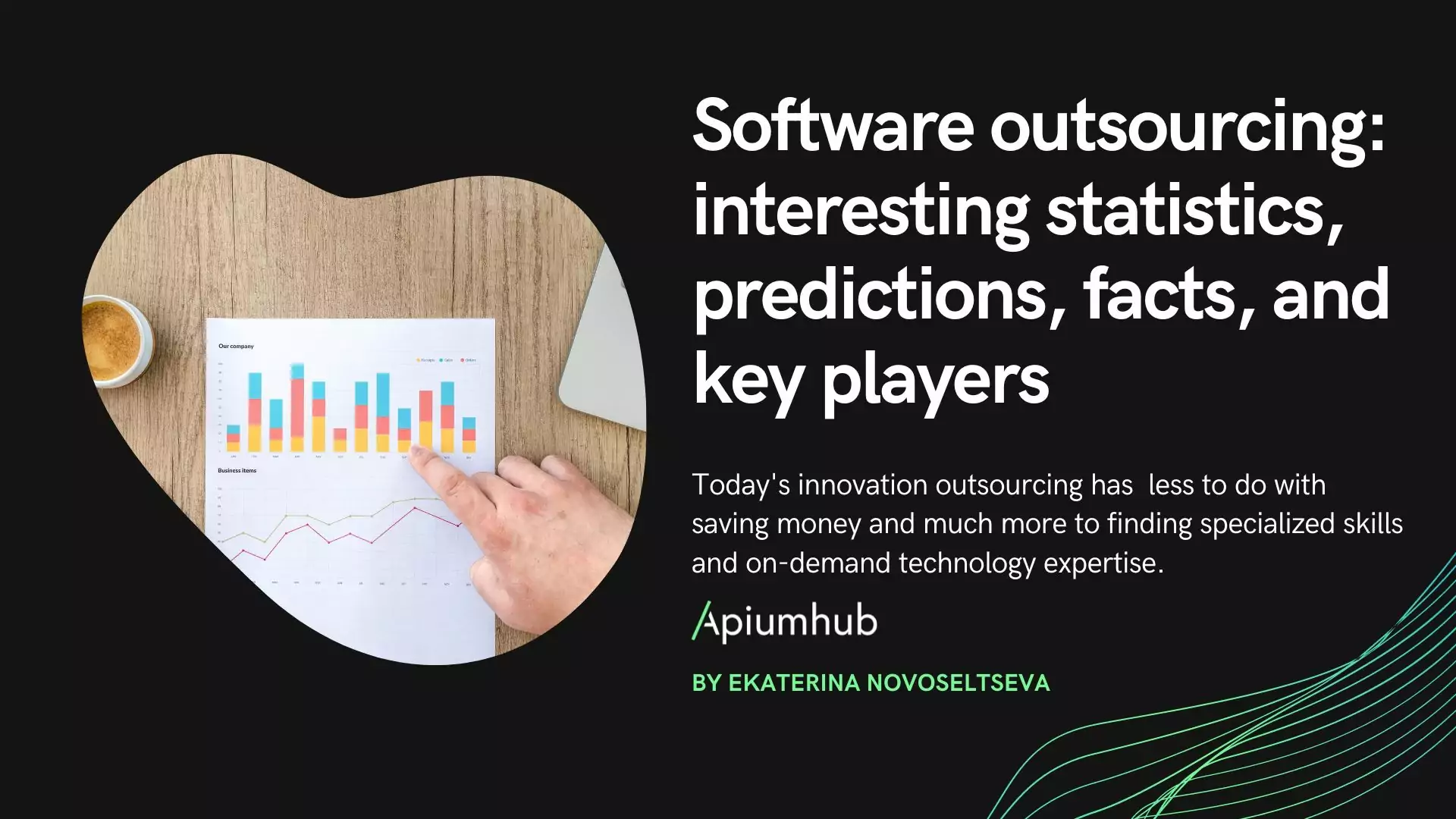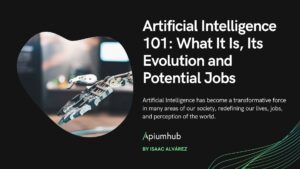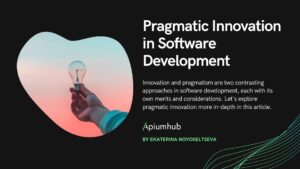Table of Contents
Marketing is rapidly becoming one of the most technology-dependent departments within the companies. It is now a key driver of IT purchasing, and this trend is expected only to grow.
Marketing has evolved over the last years. Today’s marketers own more customer data and touchpoints than ever before, and more than any other department. Marketing has become a technology-powered force, and technical capabilities start to become part of their DNA.
This rapid switch caused close relationships between Marketing and IT departments. Now, you will see quite often how CMO comes to the meeting together with the CIO. Marketing is becoming a technology-driven discipline, where code and data became fundamental.
Nowadays, in the digital world, software is marketing’s eyes, ears, and hands. I really love this phrase, because it’s true! Now we can’t afford ourselves to do something just because we think it may increase sales, now we base our decisions on data and use powerful software to do our marketing initiatives efficiently. Marketing software really helps us to simplify the day-to-day lives and save time on regular manual tasks, giving us an opportunity to focus on new campaigns and strategies. It helps us to avoid doing repetitive tasks and allows us to do human stuff like for example coming up with creative ideas, brainstorming and putting soul into our products and services.
Due to the marketing software, we can easily identify tactics that are driving new customers, converting leads, etc. And that means better ROI, and a happier project managers.
New digital channels and devices, such as search, social media, mobile, etc have complicated the customer journey of our customers. Now we have so many information, that if we think about it, we can go crazy! We live in a very complicated and stressful world! But if we use marketing software to identify what information is really key for us, we can get 10 steps closer to our target. Now, we expect that by clicking on a t-shirt we like, we will get recommendations based on our purchase history, preferences and location. Would you expect that even 5 years ago? Now, it is a norm and companies that don’t have it are suffering or will suffer in the nearest future! It may sound too harsh, but it’s true. In the world we live in right now, we need to do everything very fast and if exceeding expectations of the clients became extremely difficult, at least meeting them is a must and software helps us to do it in order to have time to move forward.
Chief Marketing Technologist
Let’s go back to the merger of Marketing and IT departments. How is that possible? Is it a 1 year process? Or a decade one? Well, probably you have noticed, that new roles were created during the recent years: Chief digital officer, Chief Marketing technologist, Digital transformation manager, etc. All these roles have 1 important thing in common : Technology !
Let’s focus more on Chief Marketing Technologist, because this is the role, which combines two roles together: CMO and CIO. This guy knows how and what technology to use for an effective marketing campaign!
CMT or Chief Marketing Technologist facilitates and prioritizes technology requests from marketing, translating between technical and marketing requirements and making sure that marketing’s requests can be done from the IT point of view and what priority should be followed.
Why do companies invest in it? Marketing teams don’t want to change their major and spend their time on learning how to code or understanding software principles as well as software guys want to advance with their software career, working on complex interesting, innovative projects rather than doing simple marketing tasks. Therefore CMT is a bridge, is a key person in the company who integrates two different worlds in one efficient ecosystem.
CMT sees a situation from different angles, what allows companies to build effective long- term strategies. CMT will know that after a particular campaign number of visitors will be more than a platform can actually hold and think about another marketing move, preventing serious damages.
Key benefits from bridging marketing and software worlds
Efficiency. Integrating marketing with IT worlds helps to achieve scalability, agility, and efficiency. Cross-functional collaboration enables a shared view of the customer with IT, sales and marketing, improving workflows and even cost reductions. Integration eliminates barriers and facilitates better engagement internally as well as engagement between your brand and the consumer. Now, most of the marketing tasks and key duties, can’t be done without knowing software. SEO – crucial for businesses field, can’t be done by marketers, who don’t know anything about coding. In the world we live today, everything is interconnected and integrated.
Risk management. Companies now face enormous risks as they try to manage brand campaigns across different platforms, from the password policies for social media accounts to the more sophisticated customer privacy concerns, security issues, marketing and IT must join forces to mitigate any threats concerning these issues.
Customer experience. Today’s successful marketers are taking a customer-centric approach and delivering a brand experience that’s compelling, personalized and consistent across all touchpoints. In order to achieve that, marketing needs software for data collection, automated analysis and targeted distribution, it means high dependents on IT expertise.
Consumers with their smartphones generate enormous amount of data while scanning QR codes, downloading mobile coupons or simply walking into a store with their location-aware device and there should be a person – CMT, who understands both business and tech world and can interpret what it means for the company and increase process efficiency. Software really changes our lives and businesses. It can leverage big data for the benefit of driving marketing insights, boosting sales, satisfying customers by doing personalization, etc. We are at the very beginning of this wave, Marketing Software and Big data are still not in the advanced stage in Europe but this fundamental shift will create multi-billion dollar winners, who start using software for their marketing NOW !
Key statistics
- Over $21.8 billion of funding for marketing technology
- Marketing Experiences investment: $11.84 billion
- 33% of marketing budget goes to technology
- 80% of companies have chief marketing technologist in title or role equivalent
- Top areas of technology investment: social marketing, digital commerce, marketing analytics, customer experience and advertising.
- 71% of marketers have an innovation budget
- On average, 49% of companies are currently using marketing automation, and more than half of B2B companies (55%) are adopting the technology. – Email Monday
- Businesses that use marketing automation to improve prospects experience, have a 451% increase in qualified leads. – Annuitas Group
- A recent Gartner study found that 67% of marketing departments plan to increase their spending on technology-related activities over the next two years. In addition, 61% are increasing capital expenditures on technology, and 65% are increasing budgets for service providers that have technology-related offerings
- 91% of marketing leaders believe that in two years they will be competing primarily on the basis of the customer experience. Nowadays marketing leaders know they can’t integrate the systems needed to deliver great experiences across all touch points without the collaboration of the CIOs’ teams.
3 main areas of marketing software
Internal technology – what we use to manage and analyze marketing operations, such as SEO, competitive analysis, social media monitoring, etc.
External technology – what we use to reach our target and deliver our content: websites, ads, landing pages, email campaigns, apps, etc.
Product technology – what features we add to our products and services and how they impact marketing ecosystem. For example, social sharing features, location features with GPS. RFID and participation in the IOT. Or digital products with viral capabilities.
Forecast for the next few years: software for marketing
- Predictive analytics and machine learning
Huge amount of data about buyers, channels and competitors is can be available for CMOs and it gives opportunities that maybe now we can’t even think of! Companies that work on this field becomes unicorns in several months, not even years. If you compare number of companies dedicated to this subject 1 year ago and now, you will see that number of them more than doubled. The best of these companies use machine learning and data science to deliver market insights and capabilities. This is especially valuable for B2B companies, where lead times are longer and purchase decisions are more considered. Companies that are doing it, are here at the right time with the right service!
- Consumer identity and personalization
For B2C companies, identity is emerging as the skeleton of user experience and digital commerce. The goal is to have the right content and experience for each user during the 5 seconds they are looking at that page on their pc or smartphone. Now, consumers expect companies to know a lot about who they are, what they like, and how they want to engage with ads and brands. There’s an almost infinite number of data points that can be got and analyzed to create a full picture of each consumer.
A recent report by VB Insight found that personalization is on the rise even in small- and micro-businesses. The key driver has been the number of vendors that have emerged to solve real-time personalization challenges.
In 2016, marketers will keep learning how to get right types of information to understand consumers, without crossing the line and knowing too much. And that’s where opportunity is!
- Consumer behaviour and targeting
Consumer behavior data is becoming increasingly critical for B2C marketing: location, past purchase behaviour, demographics, preferences, household information, etc. Now, marketers are relying on vendors that bring cross-device targeting capabilities.
- Data Management
Data management platform is a data warehouse. Software grabs, sorts, and stores information and then spits it out in a way that’s useful for marketers, publishers, advertisers, sales managers, etc
If you are interested in software for marketing, we will be more than happy to work on your project together! Feel free to contact us, we like meeting new people!
And don’t forget to subscribe to our monthly newsletter to receive latest tech trends in software industry!
If you found this article interesting, you might like…
- Top business blogs to read
- Human-centered innovation
- Barcelona makes it to the top 5 of innovation hubs
- Top smart city projects to watch
- Blockchain technology: use cases, statistics, benefits, startups & events
- Barcelona; one of the best smart cities in Europe
- Disruptive innovation to track
- The era of unicorns
- Top 20 promising startups in Barcelona
- IOT projects that may change the world
Author
-
Ekaterina Novoseltseva is an experienced CMO and Board Director. Professor in prestigious Business Schools in Barcelona. Teaching about digital business design. Right now Ekaterina is a CMO at Apiumhub - software development hub based in Barcelona and organiser of Global Software Architecture Summit. Ekaterina is proud of having done software projects for companies like Tous, Inditex, Mango, Etnia, Adidas and many others. Ekaterina was taking active part in the Apiumhub office opening in Paseo de Gracia and in helping companies like Bitpanda open their tech hubs in Barcelona.
View all posts









